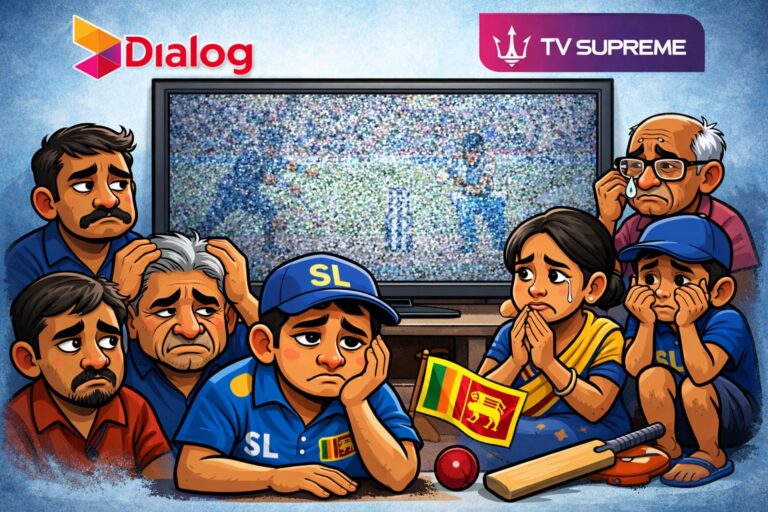In a significant stride towards safeguarding the nation’s youngest citizens, Sri Lanka’s Parliament is actively engaged in advancing a groundbreaking piece of legislation – the Penal Code (Amendment) Bill. This pivotal bill, which seeks to outlaw all forms of corporal and non-physical punishment against children in educational and institutional settings, saw critical movement within the last 48 hours, signaling a powerful commitment to child rights. The latest developments, including its approval by a key parliamentary committee and a scheduled Second Reading in Parliament, mark a hopeful turning point for child welfare across the island.
Recent Parliamentary Progress: A Bill on the Fast Track
The push for comprehensive child protection legislation has gained considerable traction. Just yesterday, on September 24, 2025, the Second Reading of the Penal Code (Amendment) Bill was scheduled to be taken up in Parliament. This follows its crucial approval on September 23, 2025, by the Sectoral Oversight Committee on Governance, Justice and Civil Protection, chaired by MP Dr. Najith Indika. The committee’s endorsement underscores the cross-party recognition of the urgent need for these reforms.
This accelerated legislative process highlights the government’s determination to address long-standing concerns regarding the safety and well-being of children. The Ministry of Justice and National Integration noted that this Bill directly addresses a persistent gap in Sri Lanka’s legal framework, finally making corporal punishment a punishable offense.
Unpacking the Bill: Redefining Punishment in Sri Lankan Institutions
At the heart of the new Penal Code (Amendment) Bill is a clear and expansive prohibition of harmful disciplinary practices. The legislation explicitly aims to ban both physical and non-physical punishments inflicted upon children not only in schools but also in child detention centres, school hostels, children’s homes, and daycare centres. This broad scope ensures that vulnerable children across various settings receive adequate legal protection.
The bill meticulously defines what constitutes an offense. It includes any physical act intended to cause pain or discomfort, no matter how slight. Crucially, it extends this prohibition to non-physical acts designed to cause humiliation, however minor. Specific examples outlined in the legislation are particularly illuminating:
- Hitting a child with a belt, even if it causes no apparent injury.
- Withholding food as a disciplinary measure.
- Publicly humiliating a child, such as calling them a thief in a school assembly.
- Even a slap that results in no physical injury is now considered an offense.
Furthermore, the amendment clarifies that such acts cannot be justified under general exceptions in the Penal Code, with Section 82 specifically amended to exclude corporal punishment from its scope. This comprehensive definition marks a paradigm shift in how child discipline is legally viewed in Sri Lanka.
Stiffer Penalties and a Focus on Emotional Well-being
The new bill introduces stringent penalties for those found guilty of violating its provisions. Offenders could face imprisonment ranging from six months to two years, a fine of up to one hundred thousand rupees, or both. Courts are also empowered to order compensation to be paid to the victim, based on a victim impact statement. For offenses committed against particularly vulnerable children—such as those in state custody or with disabilities—harsher penalties may apply. However, the legislation also allows for discretion, enabling courts to impose lesser sentences if the offender is under eighteen years of age.
Minister of Childcare, Saroja Paulraj, highlighted the deeper intent behind this ban during a statement on September 24, 2025. She emphasized that the bill aims to prevent a child’s emotional suffering, noting that while physical wounds are visible, emotional scars often go unseen. Protecting children from such emotional trauma is a core objective of the new legislation.
The Ongoing Debate: Balancing Protection and Discipline
As with any significant legislative reform, discussions around its implementation are ongoing. During the parliamentary proceedings, opposition MP Ajith P. Perera proposed an amendment. This amendment, submitted to the Secretary General’s office on the evening of September 23, 2025, seeks to provide legal protection to teachers or school authorities who can demonstrate that punishment was administered with a genuine intent to correct a child’s behavior and guide them positively. This reflects the complex challenge of ensuring child safety while acknowledging the role of educators in maintaining discipline, albeit through non-violent means.
A Broader Commitment to Child Rights
The introduction of this bill is part of a larger, sustained effort by Sri Lanka to strengthen its child protection framework. The Penal Code (Amendment) Act, officially gazetted on July 4, 2025, already introduced Section 308b, which explicitly prohibits cruel and degrading punishments, both physical and non-physical, for anyone under eighteen years of age. This earlier amendment laid significant groundwork for the current bill, which further refines and enforces these protections.
These legislative actions align with Sri Lanka’s international commitments and years of advocacy from civil society organizations and international bodies. The move is expected to foster a safer, more nurturing environment in schools and institutions, paving the way for positive discipline methods and a greater respect for children’s inherent dignity and rights.
A New Dawn for Sri Lankan Children
The progress of the Penal Code (Amendment) Bill through Parliament signals a transformative moment for Sri Lanka. By explicitly banning all forms of corporal and non-physical punishment, the nation is taking a decisive step towards creating learning and care environments where children can thrive without fear. This legislation is not merely about prohibition; it is about cultivating a culture of respect, empathy, and positive reinforcement, ensuring that every child in Sri Lanka can grow, learn, and develop their full potential in a truly protective environment. The coming days will be crucial as the bill continues its journey towards becoming a landmark law, shaping the future of child protection for generations to come.
















